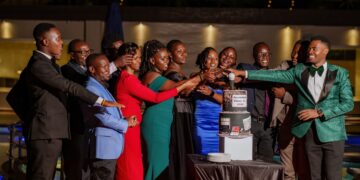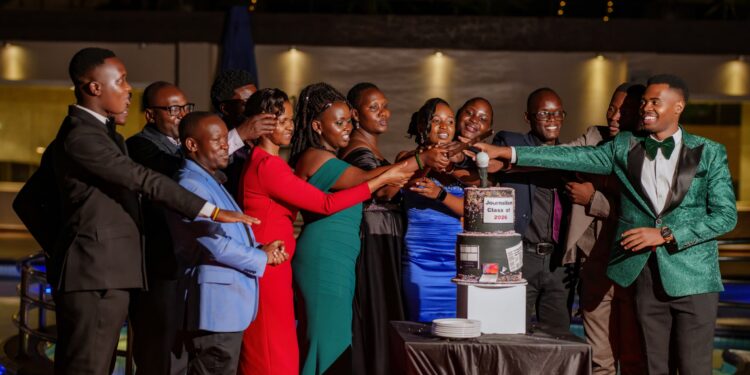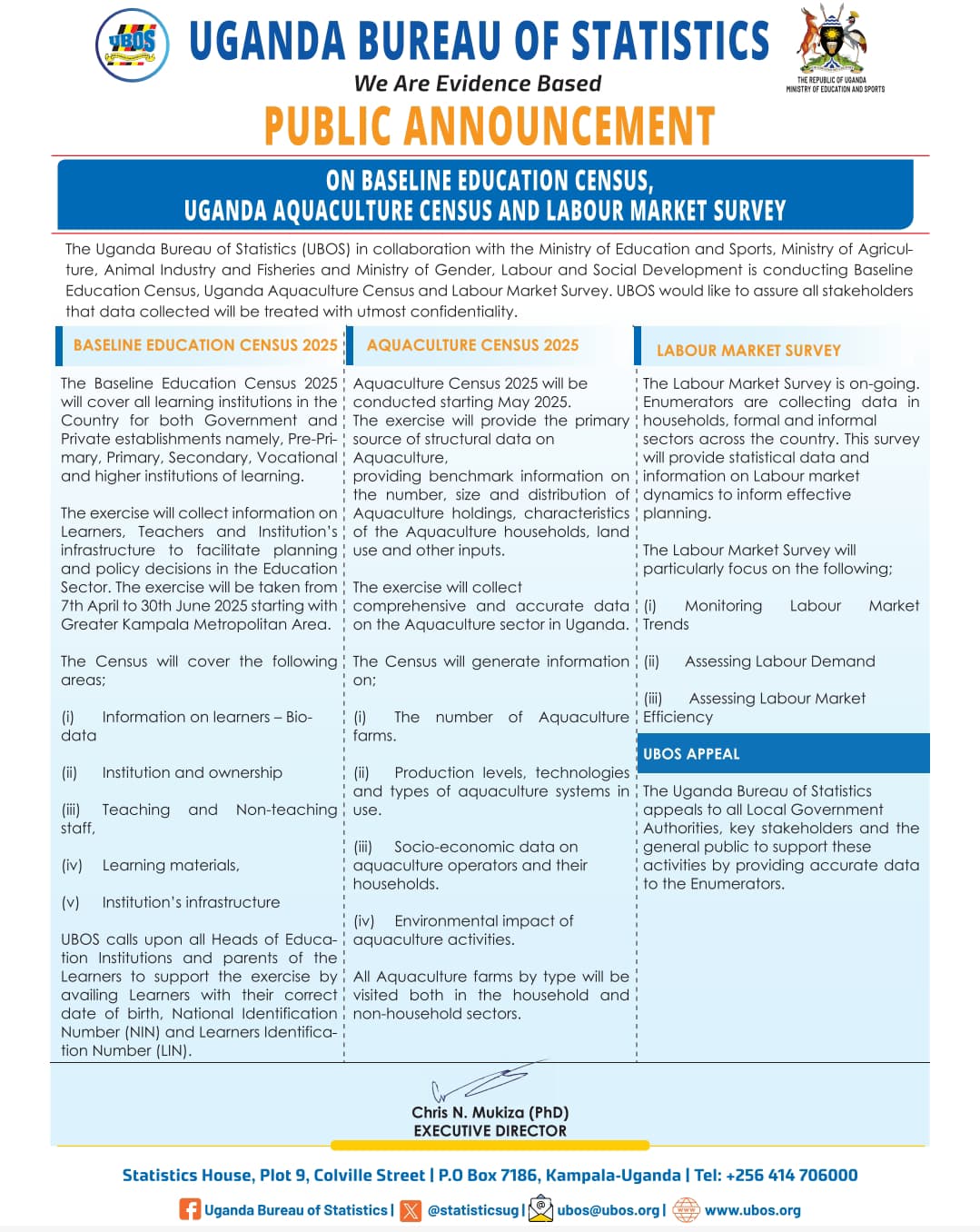The Makerere University’s Bachelor of Journalism and Communication Class of 2026 held its finalist dinner at Skyz Hotel in Naguru, bringing together graduating students, faculty, and media professionals for an evening of celebration, reflection, and inspiration.
The event was graced by Susan Nsibirwa, Managing Director of Nation Media Group, who served as a guest of honour. Drawing from her transformative journey—from a proofreader at The Weekly Topic to a leading corporate executive—Nsibirwa delivered a powerful keynote that emphasised the importance of perseverance, adaptability, and divine guidance.
“My journey has been long… by the grace of God,” she noted, encouraging students to actively shape their futures through skill, purpose, and vision. Reflecting on her Makerere roots as a 1992 alumna, Nsibirwa challenged the graduates: “What have you done with those four years at the university?”
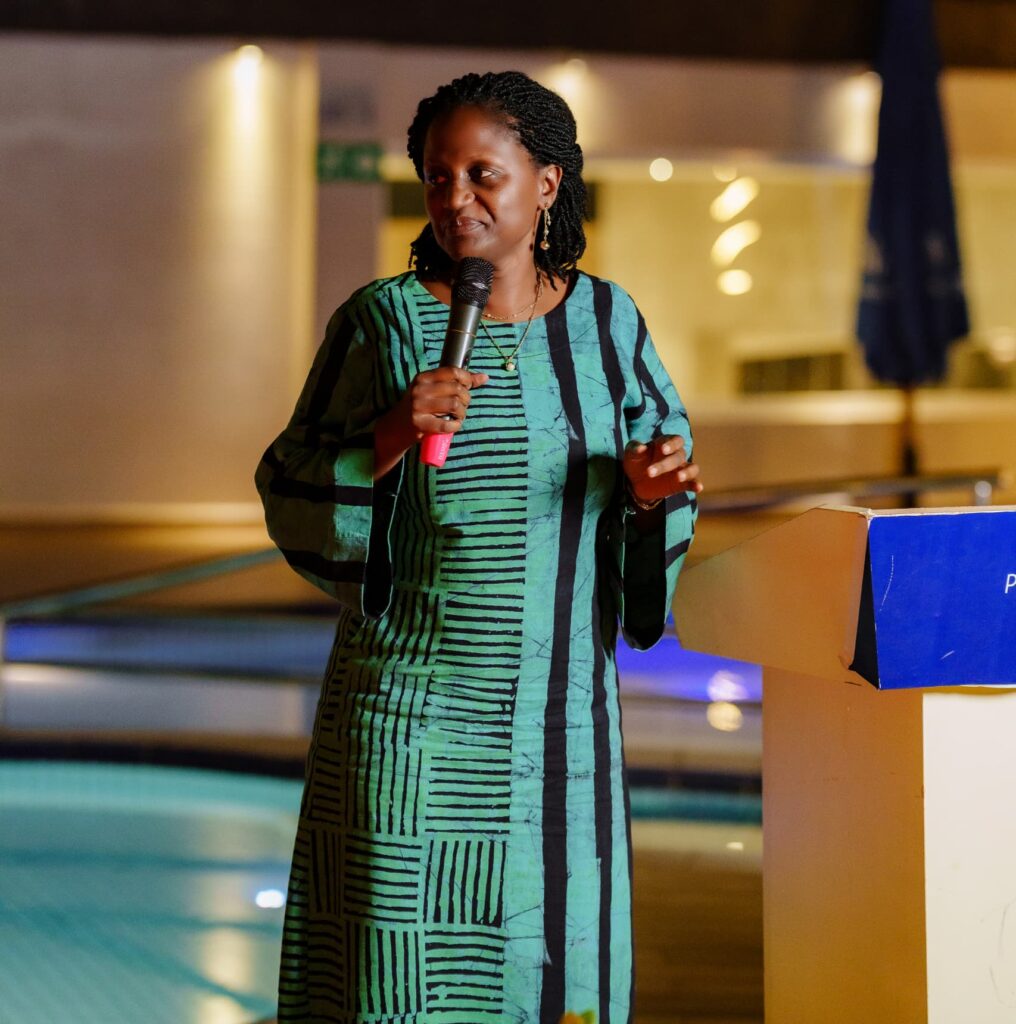
She emphasised the importance of experience, networking, and resilience in a rapidly evolving media landscape. “What do you want to be known for?” she asked, urging students to create opportunities and become architects of their careers.
“The world is changing so fast. The world is changing so fast. And you’re going into a world that is so disrupted,” she cautioned, emphasising the need for graduates to be proactive and strategic in their career pursuits.
Nsibirwa challenged the students to think critically about their career paths and to leverage their skills and knowledge to create opportunities for themselves.
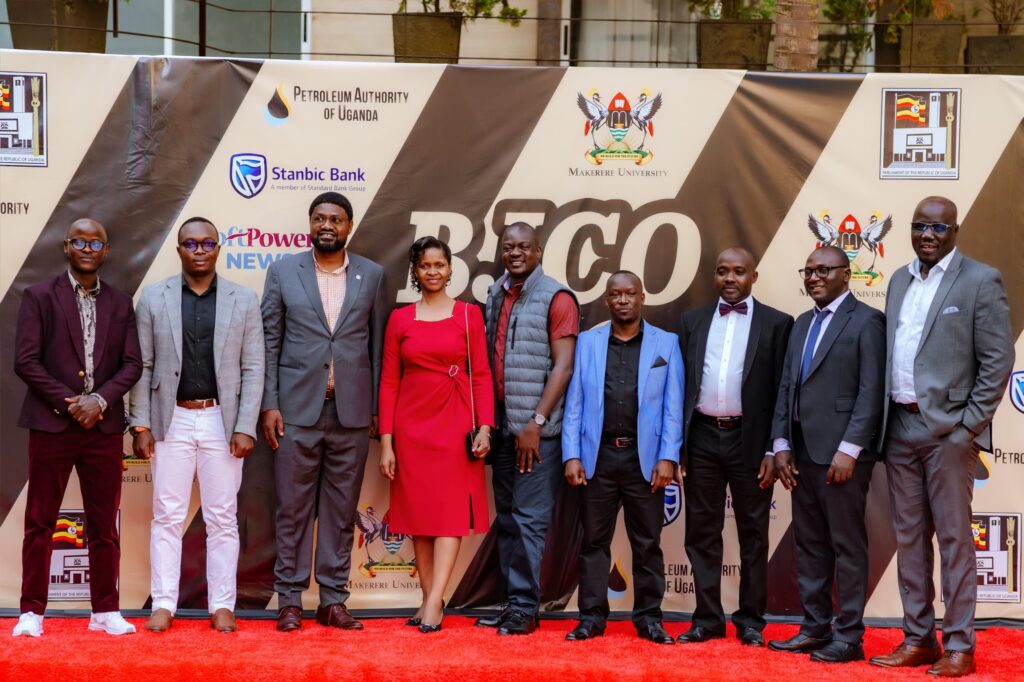
“What do you want to be known for? What is it that you want to do? Because you can create that opportunity for yourself,” she asserted, encouraging them to be innovative and entrepreneurial in their approach to the job market.
She stressed the importance of continuous learning and professional development, highlighting the value of mentorship and networking. “Who are you learning from? Who are you sitting at the feet of? Who is mentoring you?” Nsibirwa questioned, urging the students to seek guidance and support from experienced professionals in their field.
She spoke candidly about the challenges she faced along the way and the lessons she learned from her experiences.
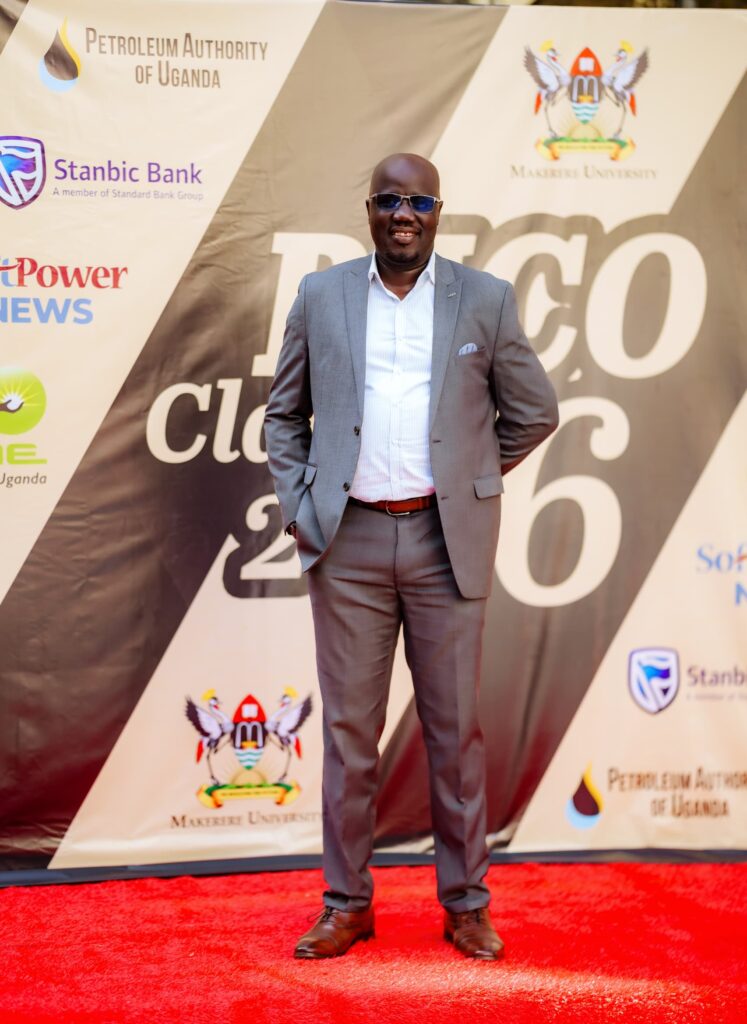
“I was the first woman to be appointed general manager in Uganda Breweries,” Nsibirwa revealed, recounting a significant milestone in her career. She emphasised the importance of resilience and determination in overcoming obstacles and achieving success.
Ali Ssekatawa, the Director for Legal and Corporate Affairs at the Petroleum Authority of Uganda, called on graduates to uphold the national interest and critically challenge dominant global narratives, especially around Uganda’s oil journey.
Ssekatawa, while acknowledging that he is not a media professional by training, shared his experiences in the media space, emphasising his role in “defending narratives, clarifying facts, and ensuring that the story of Uganda’s oil and gas journey is told truthfully and responsibly”.
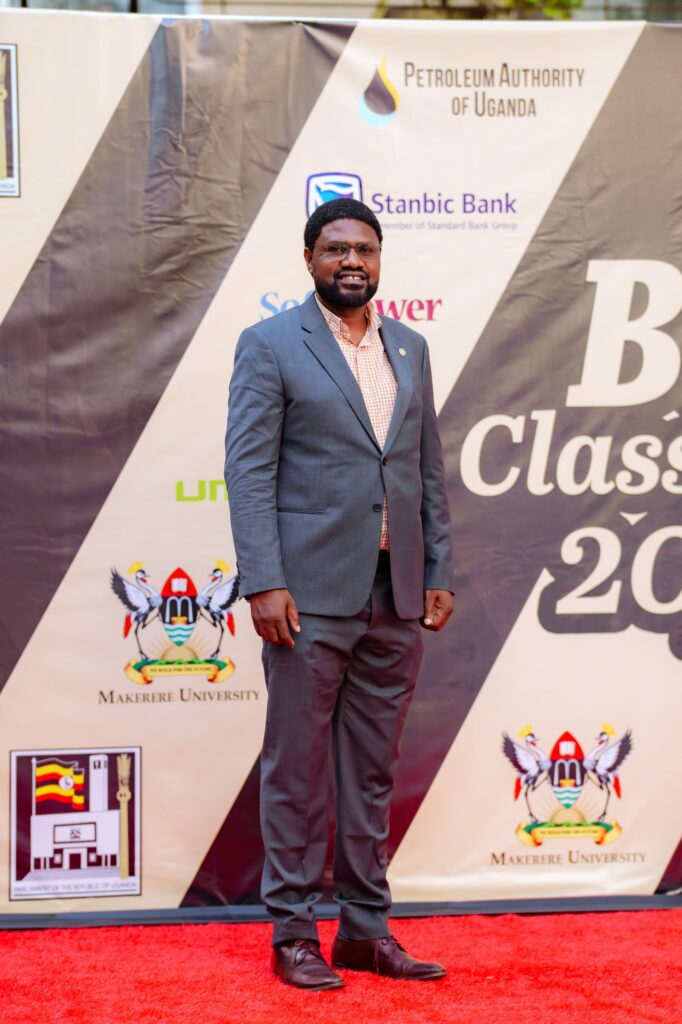
“Your pens, your cameras, your microphones—will be powerful tools in shaping how this story is told,” Ssekatawa stated, highlighting the graduates’ duty to inform, contextualise, question, and understand.
Peter Kaujju, Head of Communications at Umeme Ltd, shared insights on legacy and crisis communication, urging graduates to become storytellers who “tell to change the environment that you live in.”
He emphasised the role of clear messaging, networking, and authenticity in building a lasting professional legacy. “I have been in this section for over 16 years, but my journey started very humbly,” Kaujju stated, emphasising the importance of internships and early career opportunities.
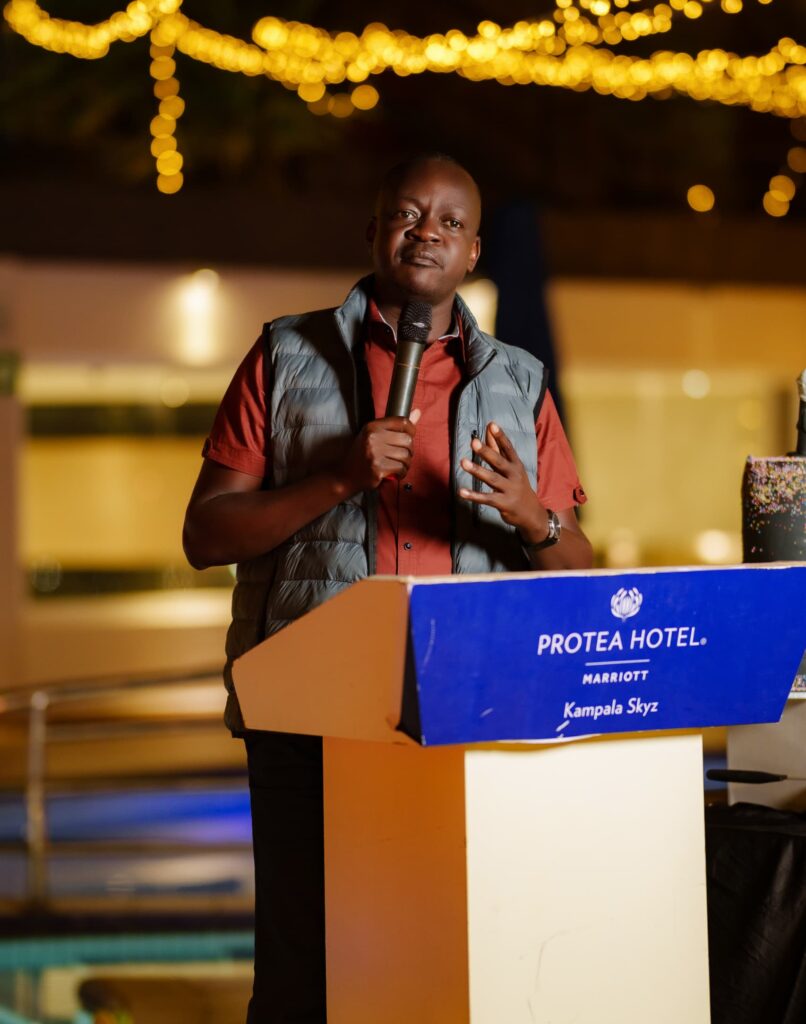
Kenneth Agutamba, Country Manager, Reputation and Corporate Communication at Stanbic Bank Uganda, inspired students to embrace a “maverick spirit” and evolve from traditional journalism to content creation. “Don’t allow anyone to restrict what happens in your mind,” he encouraged, stressing the importance of independent thought and self-branding in the digital age.
Agutamba shared his unconventional career journey, from radio in Hoima to print journalism in Kigali, stressing the need for continuous growth and adaptability. He urged graduates to view themselves as “content creators” rather than traditional journalists and to leverage social media to build their platforms.
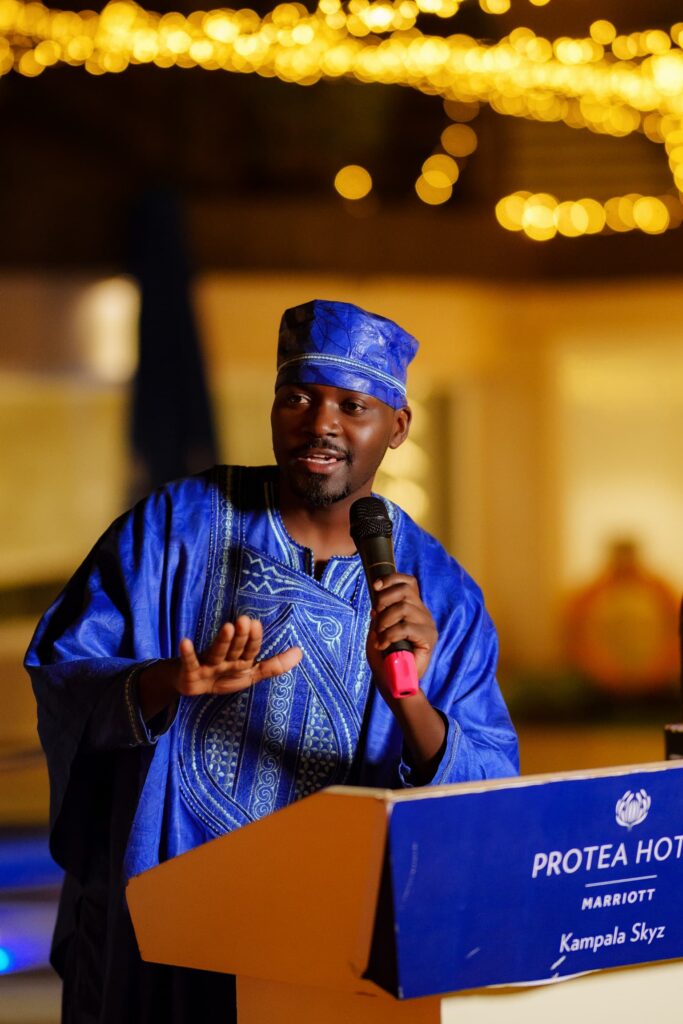
From the academic side, Dr. Fred Kakooza, speaking on behalf of the Makerere University Department of Journalism and Communication, lauded the graduates’ initiative in organising the dinner and highlighted the department’s curricular advancements.
“This shows you’re ready for the world,” said Dr Kakooza, a Senior Lecturer of Journalism and Communication, referencing new programs like the Master’s in Journalism and Media Studies.
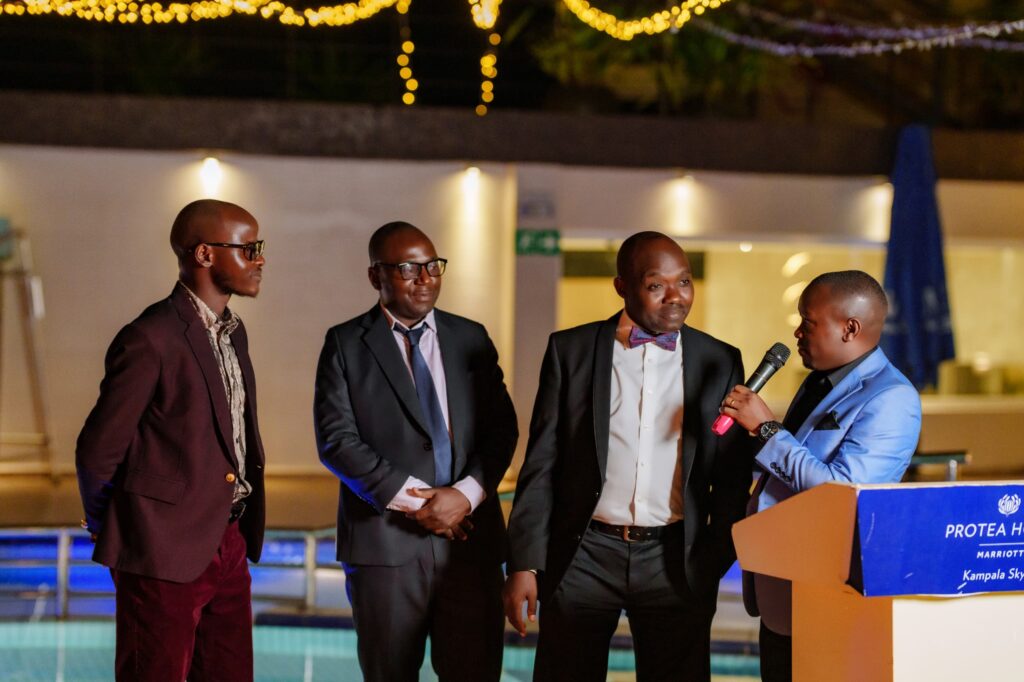
Student representatives, including Semakula Andrew Lubinga (Journalism) and Alice Joan (Communication), expressed heartfelt gratitude to faculty, sponsors, and industry mentors.
Lubinga praised the lecturers for “filling us with enormous skills and knowledge,” while Joan reflected on communication’s power to create change and envisioned cross-university collaborations to elevate the field.
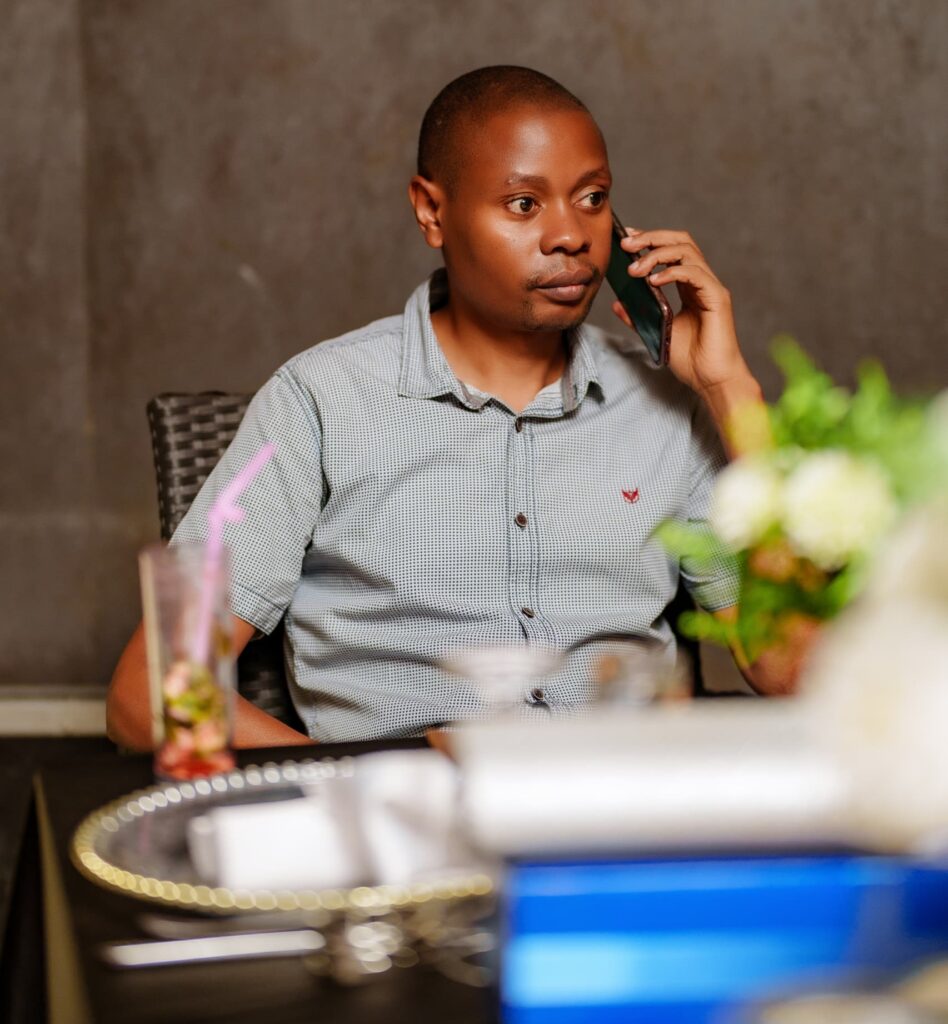
The Makerere University Journalism finalist dinner was sponsored by Stanbic Bank Uganda, Nation Media Group, The Parliament of Uganda, The Petroleum Authority of Uganda, Umeme Limited and Soft Power News.
